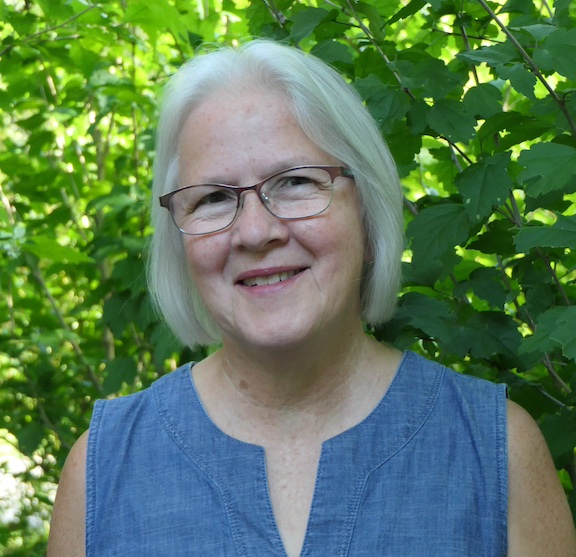Wedding Blues
The ceremony unites two as one — but not always
It’s impossible for humans to know the end from the beginning, whether writing a poem or attending a solemn ceremony.

In search of inspiration on a day in autumn, I was looking through a file of half-written pieces and discovered a poem I was calling “At Janna’s Wedding.” Janna has now been married for seven years, and the piece remains unfinished, little more than a list of images: a stalk of half-open gladiolus, blushing peonies, fragrant roses — components of a beautiful girl’s happy wedding day. I recall that one wall of the reception hall at Janna’s wedding was covered with oversized handmade paper flowers, all in white. The effect was stunning, and Janna’s mother was able to sell the entire piece to someone else for a wedding later that season. At the second wedding, which I also had an invitation to, the flower wall provided a backdrop for a photo booth where my husband and I posed with smiles and a feather boa to mark the occasion.
I have found weddings to be rich with poignant images, abundant fodder for potential poems. More and more, it seems, couples are choosing to abandon tradition and create their own imagery. When Janna and her groom emerged from the church to embark upon their life as one unit, they did not make a mad dash through a rain of rice but walked smiling past a crowd of friends and family who waved blue and gold ribbons tied to the ends of small dowel rods. It is a lovely memory — but I never finished that poem.
Saving my work on this essay to check the spelling of “gladiolus,” I discovered that I already had five other files starting with the word “wedding.” One was called “Wedding Poems,” a fact so curious I was compelled to open the document. What I found was not a collection of my own work about weddings — for which I was grateful, as I had no memory of actually completing such a collection — but two poems I once read at a wedding. Chris and Daeana love poetry, so they asked me — one of their former teachers — to read at their ceremony works that represented their own feelings.
The poems Chris and Daeana chose were “I Saw Two Clouds at Morning” by John Gardiner Brainard and Shakespeare’s Sonnet 116, the one that begins “Let me not to the marriage of true minds / Admit impediments.” The Brainard poem describes two clouds that appear in the sky and float closer and closer until they join. Then the poet tells about two rivers that flow until they merge and continue as one: fit analogies for the joining of two lives.
Reading those poems, I stood at the microphone on a warm May afternoon, wedding guests assembled at round white tables under the open pavilion of Miller Plaza in downtown Chattanooga. The bride and groom faced one another, listening — I supposed — to the verses they had chosen to convey their love and devotion to one another. “Love is not love which alters when it alteration finds,” Shakespeare declares, and I have watched these two young people hold onto one another through inevitable alterations, their love a “star” keeping them steady.
Another couple of former students I’ll call Kyle and Lily married one September in a field owned by Lily’s family, who had gone to great trouble and expense to erect a tent and move church pews out into the open air and sunshine for what might have been a beautiful fall ceremony under bright blue skies, surrounded by waving grasses and nearby golden hills. On the appointed day, however, guests arrived at the venue in a downpour that showed no sign of letting up. We bravely held umbrellas over our heads as we tiptoed across the sodden ground, ruining our shoes, and stood around the pews filling with water to watch the bride and groom demonstrate that nothing would stand in the way of their perfect wedding.
“These two are so right for each other,” we all said. “Look how happy they are. They don’t care about rain!” Kyle and Lily smiled through their vows and laughed out loud as they passed through the crowd of soggy well-wishers at the end of the service.
Less than two years later, I was at the June wedding of Melinda, where Lily was a bridesmaid. I didn’t see Kyle and approached Lily. “Where is your husband?” The young woman’s sad smile told me the news was not good, and her words confirmed it: “We’re getting a divorce.”
I saw both Lily and Melinda at another wedding later that same year. This one was situated on a hilltop with a stunning sunset backdrop. At the dinner following the ceremony, I sat with Melinda and her handsome husband, who were still full of honeymoon giddiness, picking food from one another’s plates and trading secret smiles across the table. Lily came over to join our group for a little while. I had never heard why she and Kyle parted. I wondered if yet another September wedding would be a wound to her, but if she felt any sadness, she concealed it well.
Getting up to leave, I held Lily’s hand briefly and looked into her eyes. As she smiled back at me, I thought of that day just two years prior when she and her young man braved clouds and rain, determined to outlast any gloomy omen. Now, instead of storms and sorrow, I seemed to see in her calm countenance a single cloud floating alone into a clear blue sky.

Copyright © 2024 by Sherry Poff. All rights reserved. Sherry Poff is an educator and writer living in Ooltewah, Tennessee. She holds an M.A. in writing from The University of Tennessee at Chattanooga and is a member of the Chattanooga Writers’ Guild. Sherry has a new story in 23 Tales from Howling Hills Publishing. Sherry’s poems and fiction have appeared recently in The Clayjar Review, Anthology of Appalachian Writers, Pine Mountain Sand & Gravel, and Heart of Flesh.


